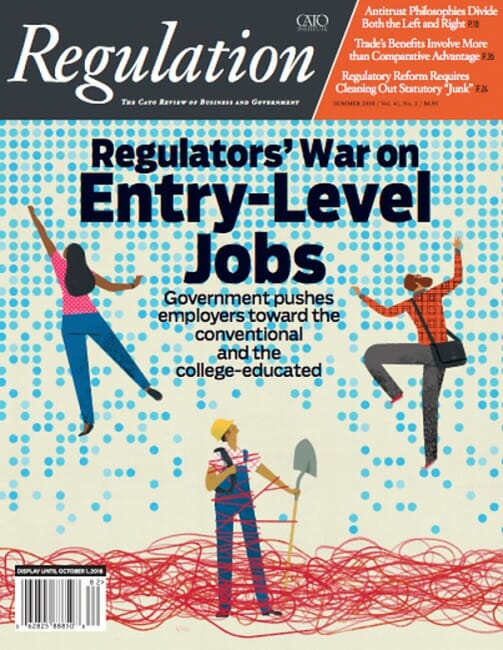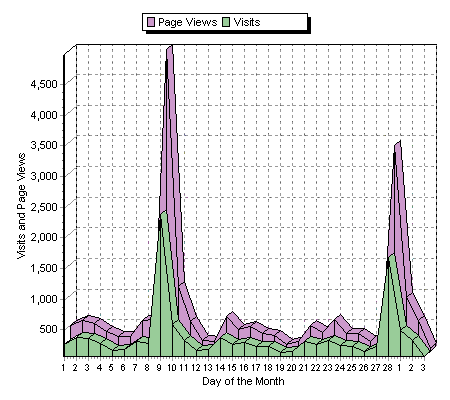The Democrat's "Green New Deal" is Mao's Great Leap Forward Brought to America. In Fact I Think I Am Going To Call It the Green Great Leap Forward
Readers have wondered why I have not really jumped on Alexandria Ocasio-Cortez's Green New Deal plan (which has since been endorsed by most major Democratic presidential candidates). Well, one-reason is that we had no details, at least until a formal resolution was introduced in Congress and an FAQ went up and then back down on AOC's website. The Ocasio-Cortez camp claims the FAQ went up by mistake (after previously claiming it was a Republican false flag operation), though I consider it more of a Kinsley Gaffe if it was a mistake at all.
The other reason I have ignored it to this point is the same reason I never enjoyed those American Idol episodes where they show all the people who can't sing but really think they are awesome embarrassing themselves. It's weird enough seeing people who are incompetent think that they are capable. It is even weirder seeing that person cheered on by a million other incompetent people on twitter.
But it appears that the entire Democratic Party has rapidly endorsed the plan, and every one of their Presidential candidates have said they are all for it, though site-unseen. So I guess I have to wallow in a bit. This may be the first of many posts, or maybe not. It depends on how much I want to shoot at fish in a barrel.
It's hard to know where to start. My first overall reaction is that there is no science and no economics in the plan at all. I find this ironic (though not surprising) given that it comes from the environmental community that has called me "anti-science" for years for doubting global warming forecast rates based on exceptionally high degrees of positive feedback built into computer models. AOC's entire plan feels like the results of a late-night policy brainstorming by a group of vegan poetry majors who chip in every idea they have seen someone post on Facebook.
Readers know that despite my skepticism that manmade CO2 will cause a climate catastrophe, I have presented a CO2-reduction plan on these pages. You can read it here, but the three most relevant planks were:
- A revenue-neutral carbon tax that increased the price of producing CO2 and then let individuals and markets figure out how to do that most efficiently. Since the point of the carbon tax is not to raise money for politicians but to send pricing signals to fuel users, the proceeds were netted against reductions in other regressive taxes, such as the payroll tax
- Elimination of all the command and control government programs where politicians pretend they know they best solution to technical-industrial problems and then mandate that scarces resources flow to their preferred solutions. These are counter-productive, and not necessary since the carbon tax does the work for us
- Make regulatory changes to unleash a new generation of safe nuclear power, since this is the only high-production, reliable, not time-of-day dependent source of electrical power that we know about.
I did not think it was possible -- I presented the plan above as a transpartisan plan intended to bridge the gaps between Left and Right -- but the Green New Deal is EXACTLY opposite this plan
First, as with many on the Left, AOC does not understand much about economics, so she does not understand the carbon tax. For the Left, the point of a carbon tax is not to send pricing signals in the marketplace but to raise money for politicians to spend on pet projects. We saw this back in the Washington State carbon tax proposal, where environmentalists rejected a carbon tax because it was revenue neutral. In her FAQ, AOC does exactly the opposite of my point 1 and 2. She wants people just as smart and economically-savvy and scientific and stuff like herself at the top to redesign the US economy and to do this she needs a LOT more money than just a carbon tax:
The Green New Deal is a massive investment in the production of renewable energy industries and infrastructure. We cannot simply tax gas and expect workers to figure out another way to get to work unless we’ve first created a better, more affordable option. So we’re not ruling a carbon tax out, but a carbon tax would be a tiny part of a Green New Deal in the face of the gigantic expansion of our productive economy and would have to be preceded by first creating the solutions necessary so that workers and working class communities are not affected. While a carbon tax may be a part of the Green New Deal, it misses the point and would be off the table unless we create the clean, affordable options first.
Do you start to see the Great Leap Forward analogy? Just to finish off the thought, AOC also goes the opposite direction of my nuclear point, proposing to ban nuclear power and dismantle all that carbon-free electricity production. Ask Germany how well that has worked out for them, as they have been forced into a rush of new coal-fired plants, or New York that is building three new large natural gas plants to replace the nuclear plants it is closing. I will bet a thousand dollars that AOC has no real knowledge of nuclear safety nor has she spent probably 5 minutes studying the new generation of nuclear technologies. Frankly, I bet as far as she has thought about it is that it is expected to be anti-nuclear on the Left so she is anti-nuclear like the other cool kids.
Every dumb, unscientific nostrum for energy-use reduction has at one time or another over the last several months been attached to the plan. One example is the call for dismantling industrial agriculture and promoting local food production. This is easily one of the silliest ideas (for fuel reduction) I can imagine and have written about it before. I have no problem if you want to buy locally and don't want to buy from Kraft or Cargill. Power to you. But the conclusion that local food production will save energy is exactly the sort of conclusion that people with no experience rigorously analyzing scientific problems come up with. They jump from the fact that Agriculture uses a lot of energy to "it must all be in transportation" and thus conclude "local agriculture will save lots of fuel." But this is absurd. First, fuel use in agriculture is not mostly transport to the end consumer. The actual growing process consumes most of the fuel, and this fuel use is much more related to land productivity and economies of scale that would be destroyed by a local agriculture mandate. And even if it did actually improve fuel use, think of the other environmental effects of growing food locally on land less-suited to its production -- you would greatly increase land and water use, just to start, both likely creating more environmental problems.
I am reminded of Mao's idea during the Great Leap Forward that China needed to produce all its steel locally in home-based backyard furnaces (I kid you not). I think most of us can predict the obvious result - steel production crashed because you can't produce steel in any kind of amount or quality in the backyard. But there were two less obvious results as well. One, this contributed to the crash in agricultural output as skilled agricultural labor and resources was diverted to this silly steel-making scheme. And two, whole forests were denuded as people sought out fuel for these furnaces. China is still recovering from environmental messes this caused. India barely avoided the same disaster as Ghandi wanted to eschew industrial production in favor of home spinning and weaving. THIS is what you get when you let ignorant people command and control the economy. Heck, this is what you get even when you let really, really smart people command and control the economy.
Update: Since I have eschewed Twitter, mostly, of late, I missed the fact that #greenleapforward is the term folks are converging on. Happy to go with that.

